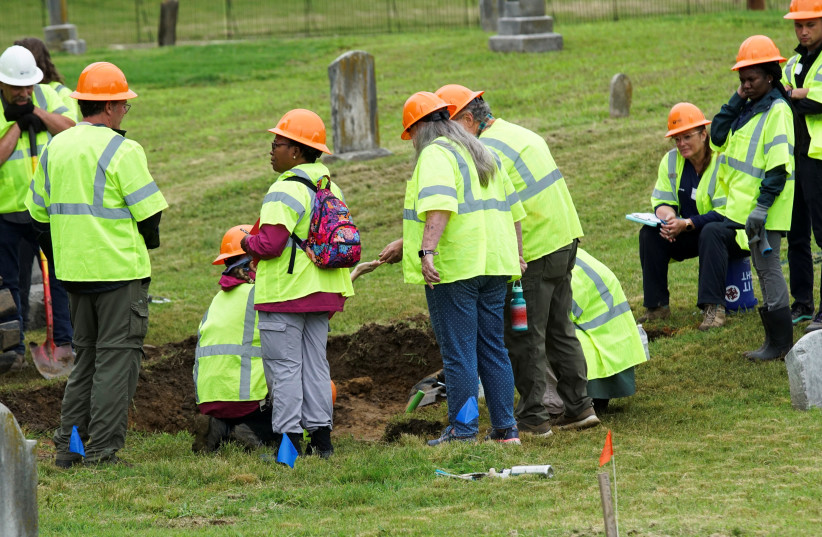Progress has been made in identifying the victims of the Tulsa Race Massacre in 1921, according to forensic archaeologists.
22 bodies have been exhumed from Oaklawn Cemetery in hopes of identifying them. Nineteen surnames that are thought to be connected with the victims have been identified.
Although, six bodies connected with the nineteen names have not been confirmed to be victims of the massacre. The bodies also do not show signs of trauma, which might help researchers identify which part of the Tulsa cemetery is reserved for victims.
Identifying the bodies would enable death certificates to be issued for the victims that would memorialize that person’s life, according to Phoebe Stubblefield, a member of the cemetery excavation team who was cited by phys.org.
Investigators could "maybe get the pattern of how people were buried in that cemetery. By that I mean burials for January, burials for February, burials for March, and we're moving toward June" when massacre victims were buried, said Stubblefield added in an interview with the site. "We can find a greater concentration of probable victims."

What is the Tulsa Race Massacre?
From May 1 until June 1, 1921, a racist White mob attacked the Black community of Tulsa in the United States.
The mob destroyed over 1,000 homes and looted hundreds more. A business center, known as the Black Wall Street, was also destroyed.
The death toll of the event is still a matter of dispute for historians, with estimations varying from 75 to 300 Black people having been murdered. One of the major barriers to identifying the exact number of victims is that many victims were buried in unrecorded and unmarked graves. There are rumors of mass graves amongst the historical community of Tulsa.
City officials have requested DNA from those that believe that they may be related to the victims or that have a historical connection to Tulsa. Officials hope that DNA samples may help to identify remains.
Identifying the surnames helps "move the needle on a more than the century-old event," Tulsa Mayor G.T. Bynum said in a statement. "We are still in the beginning stages of this process. There is a lot more investigative work that is happening."
"We do not believe a match of this type has ever been achieved before in American history," the mayor added.
"There isn't a single genealogical investigation of this magnitude in the United States that has gotten this far, and yet, we are still in the beginning stages of this process," Bynum continued. "There is a lot more investigative work that is happening, and with the public's help, we are eager to enter the next phase of this process."
